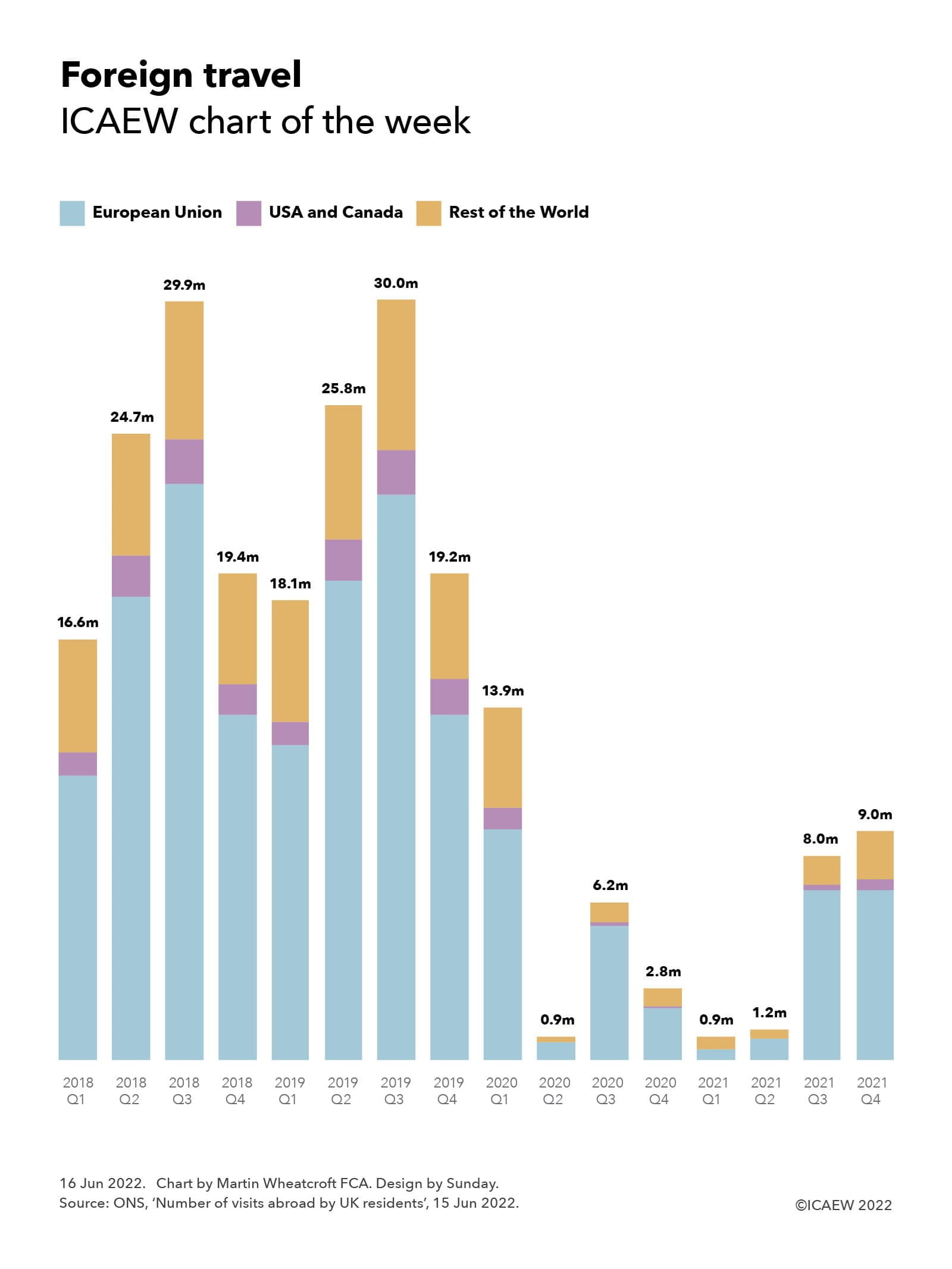
The Office for National Statistics (ONS) issued detailed statistics on travel to and from the UK on 15 June 2022 highlighting how both inbound tourism and outbound foreign travel fell dramatically over the course of the pandemic. As our chart illustrates, there were 90.6m visits abroad by UK residents in 2018 (16.6m, 24.7m, 29.9m and 19.4m in Q1: Jan-Mar, Q2: Apr-Jun, Q3: Jul-Sep and Q4: Oct-Dec respectively) and 93.1m in 2019 (18.1m, 25.8m, 30.0m and 19.2m), before dropping to 23.8m in 2020 (13.9m, 0.9m, 6.2m and 2.8m) and partially recovering to 19.1m in 2021 (0.9m, 1.2m, 8.0m and 9.0m).
Most journeys were, as you might expect, to our nearest neighbours in the European Union (led by Spain, France, Italy, and Ireland), with the USA and Canada being major destinations too. Other popular destinations visited included Turkey, India, Switzerland, the UAE, China, Mexico, Australia, Thailand and ‘cruises’.
For 2018 through 2020, around 63% of foreign trips were for holidays, 25% were to visit friends or relatives, 10% were for business and 2% were for other reasons. Unusually, in 2021 just 47% of visits were for holidays and proportionately a much higher 43% were to see friends or relatives, with 7% being business trips and 3% for other reasons.
The recent chaotic scenes at airports and flight cancellations may be one reason not to travel internationally at the moment, but there are big questions about whether our travel habits will return to the levels seen before the pandemic even when those problems are resolved. The fall in the value of the pound makes overseas trips even more expensive just as families are feeling a big squeeze in their incomes as inflation accelerates upwards. Virtual meetings are making business trips less necessary than before, while many individuals want to cut back on flying in order to do their bit to contribute to achieving net zero.
Despite that, substantial growth is expected in 2022 and 2023 in the number of visits abroad from the low base of 2020 and 2021 as – for many of us – the lure of distant (and not so distant) shores will just be too great to resist.



